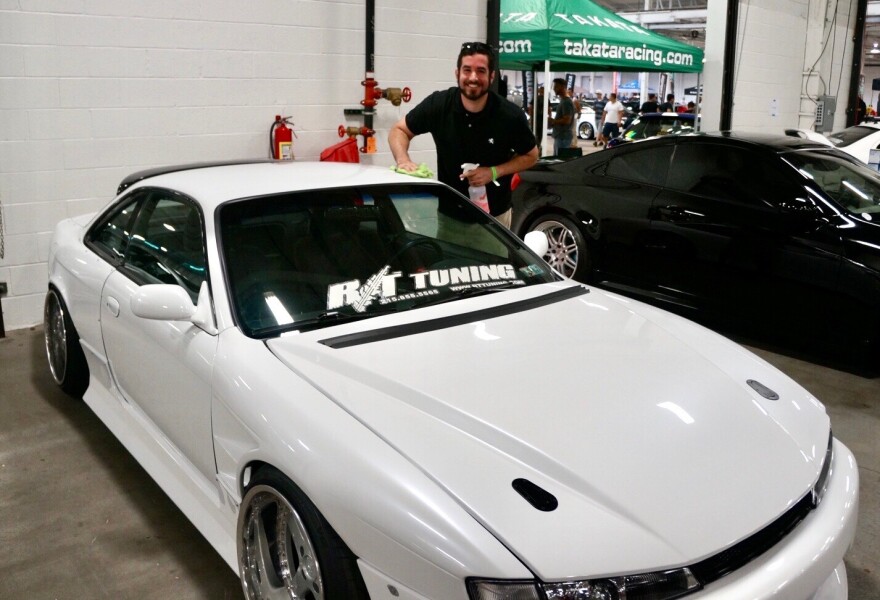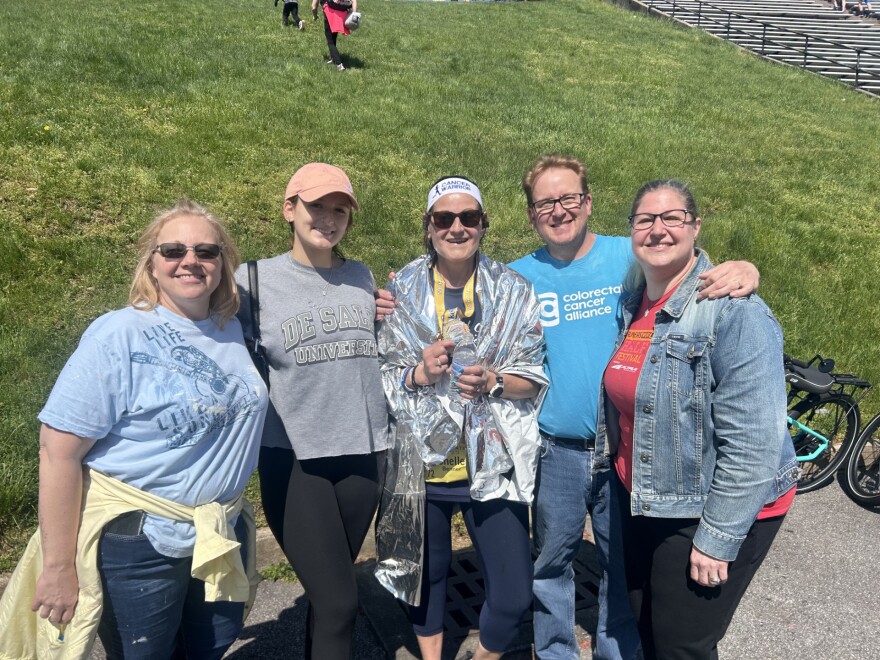BETHLEHEM, Pa., — “If you have a colon you're at risk.”
That's the message two Lehigh Valley women want people to hear. They are using their family stories of how cancer was nearly missed to raise awareness about colorectal cancer.
In 2018, Chelle Benner, of Bethlehem, was in the best shape of her life.
“I trained for and completed the St. Luke's Half Marathon,” she said. “I did it and I was proud of myself, but after I completed that race, I started having GI symptoms. So, it started with diarrhea and then, to be perfectly frank, on to just blood.”
Frightened by her symptoms, Benner went for a colonoscopy.
“They couldn't even complete the colonoscopy because they couldn't get through my rectum,” she recalled. At 52, the mom-of-one was told she had advanced rectal cancer.
"I was flabbergasted. It was not within my vocabulary to think I had cancer," she said.
Paying attention to symptoms
Benner has no family history of cancer, but as she looked back, she says all the symptoms were there. Doctors overlooked those symptoms, she said, and told her they were the result of a bariatric surgery 10 years prior.
"I was complaining for several years without being heard,” she said. “I regret that. I feel like I wasted some time. I kicked myself in the butt as ‘Why didn't I know?'"
"I was flabbergasted. It was not within my vocabulary to think I had cancer."Chelle Benner, of Bethlehem
Benner said doctors told her the tumor had been growing for the better part of a decade. She underwent nearly a year of treatment and is now five years cancer-free.
“I can't even say that [cancer-free] without crying because while I'm grateful, I have lost so many people in these last five years — great advocates who brought me into finding my voice are not here and this is why I keep speaking.”
Connecting with others
After treatment, Benner joined the Colorectal Cancer Alliance where she met Kelly Sanders of Fogelsville who lost her 34-year-old brother, Glen McCartney, to colon cancer in 2020.
"I realized there was a whole group of people who had similar stories to mine and I felt like I found a home and connected with many people that understood what I was going through,” said Sanders.
Her brother had a similar story to Benner, where doctors missed his cancer symptoms.
"He was misdiagnosed and was given treatment for a common thing that doctors will assume younger people have, just constipation and hemorrhoids,” she said. “The medicine wasn't working.”
"If there are any symptoms that you're feeling, get to the doctor and get checked out."Kelly Sanders, who lost brother to colon cancer
She said her brother was experiencing symptoms for a few years, so the colon cancer had progressed by the time it was correctly diagnosed.
“Following several months were many surgeries and chemos," Sanders said. "They thought they got rid of the cancer in spring of 2020 and then it came back by the end of the summer and has spread to some lymph nodes and his brain."
McCartney died in October of that year.
Advocating together
Now, Sanders and Benner are using their stories to educate people about colorectal cancer.
"If there are any symptoms that you're feeling, get to the doctor and get checked out. If that's not working, go to another doctor and find one that will listen and listen to your body,” advised Sanders.

Through their work with the Colorectal Cancer Alliance, they let people know how early screenings and advocating for oneself can save lives.
“A polyp removed can never become cancer."Chelle Benner, rectal cancer survivor
“A polyp removed can never become cancer,” said Benner. “If you get that screen early enough in your cancer journey, it's removed, like it's just beginning to turn to cancer and they take it out, you can be cancer-free. Ninety-one percent survival rate.”
Benner also wants people to talk about colorectal cancer as much as they discuss breast cancer.
“Everybody talks about boobs all the time. Butts are important too,” she said.

She also reminds people that although a family history puts people more at risk, those without a family history of cancer can still be diagnosed with it.
“Never doubt because I doubted. ‘Of course there's no way I could get colon cancer. It's not in my family history.’ That's not true. Anybody with a colon can get colon cancer,” Benner said.
While advocating for screenings, Sanders is also keeping her brother’s memory alive.
"He was a car enthusiast and he had a car that he worked on and took around to shows as a hobby, so that has become a way for my parents and I to keep his memory alive,” she said.
Sanders is hosting the inaugural Cars and Cookies car show Sunday, May 5, at Macungie Memorial Park in honor of her late brother,. The event will be sponsored by the Colorectal Cancer Alliance.


